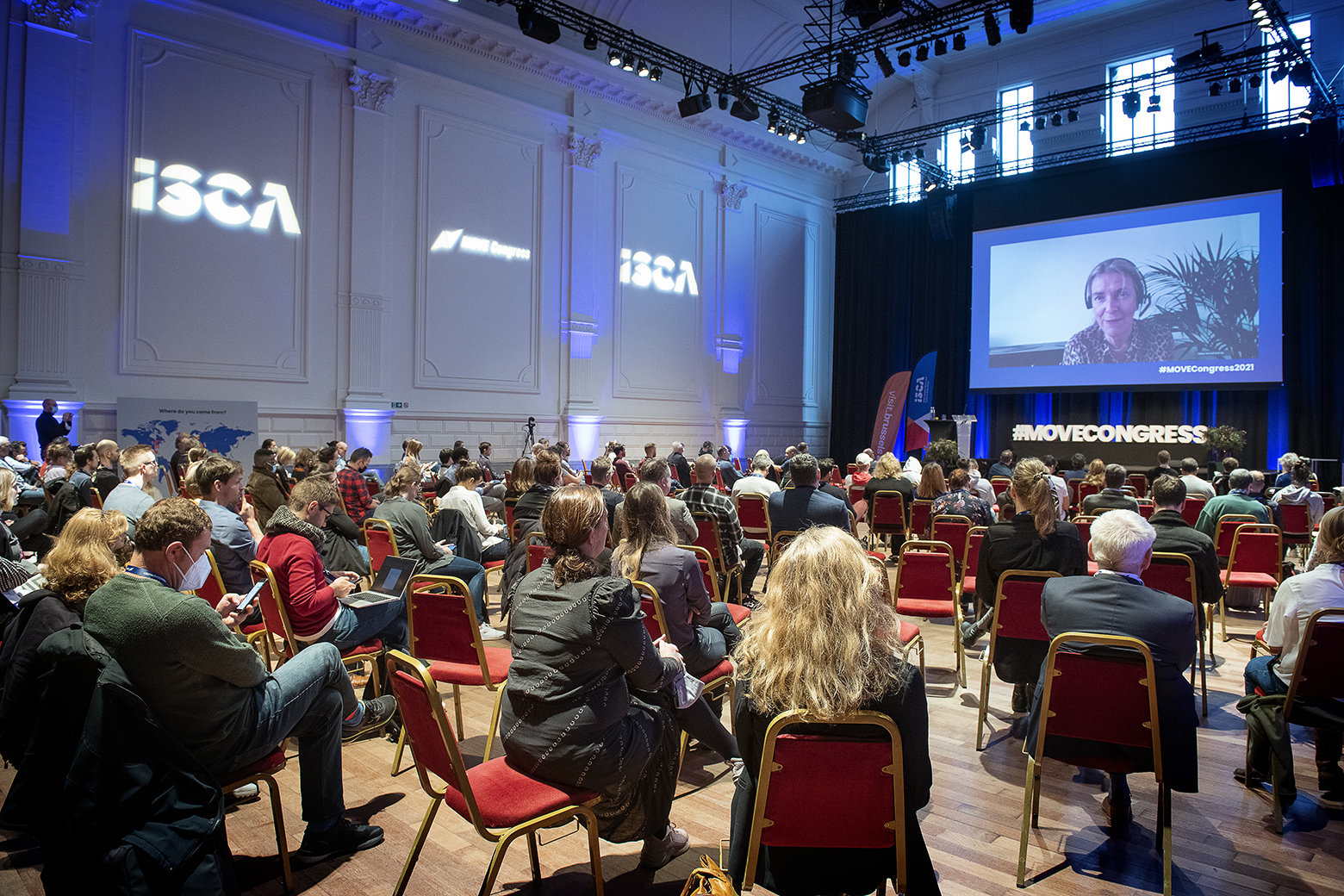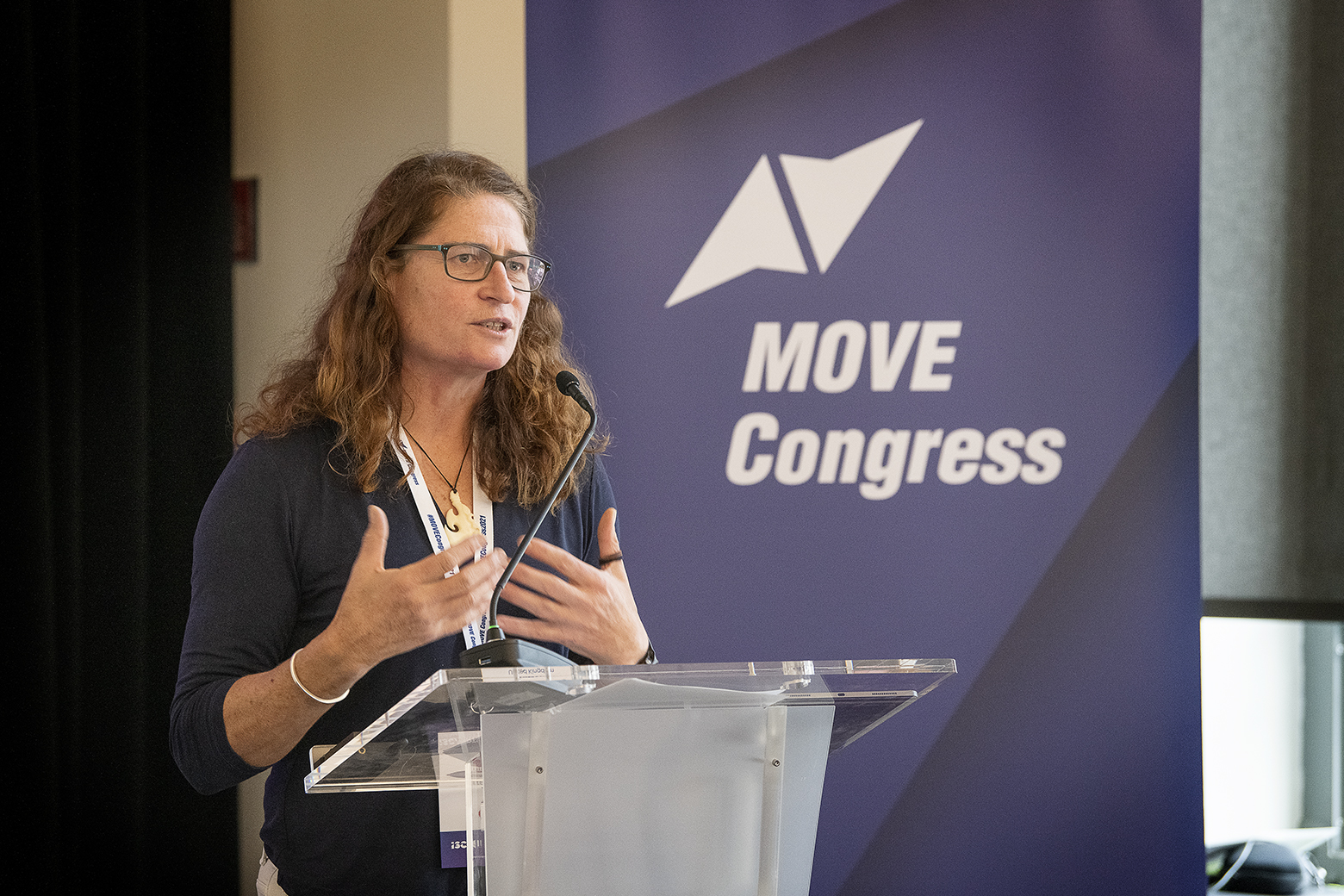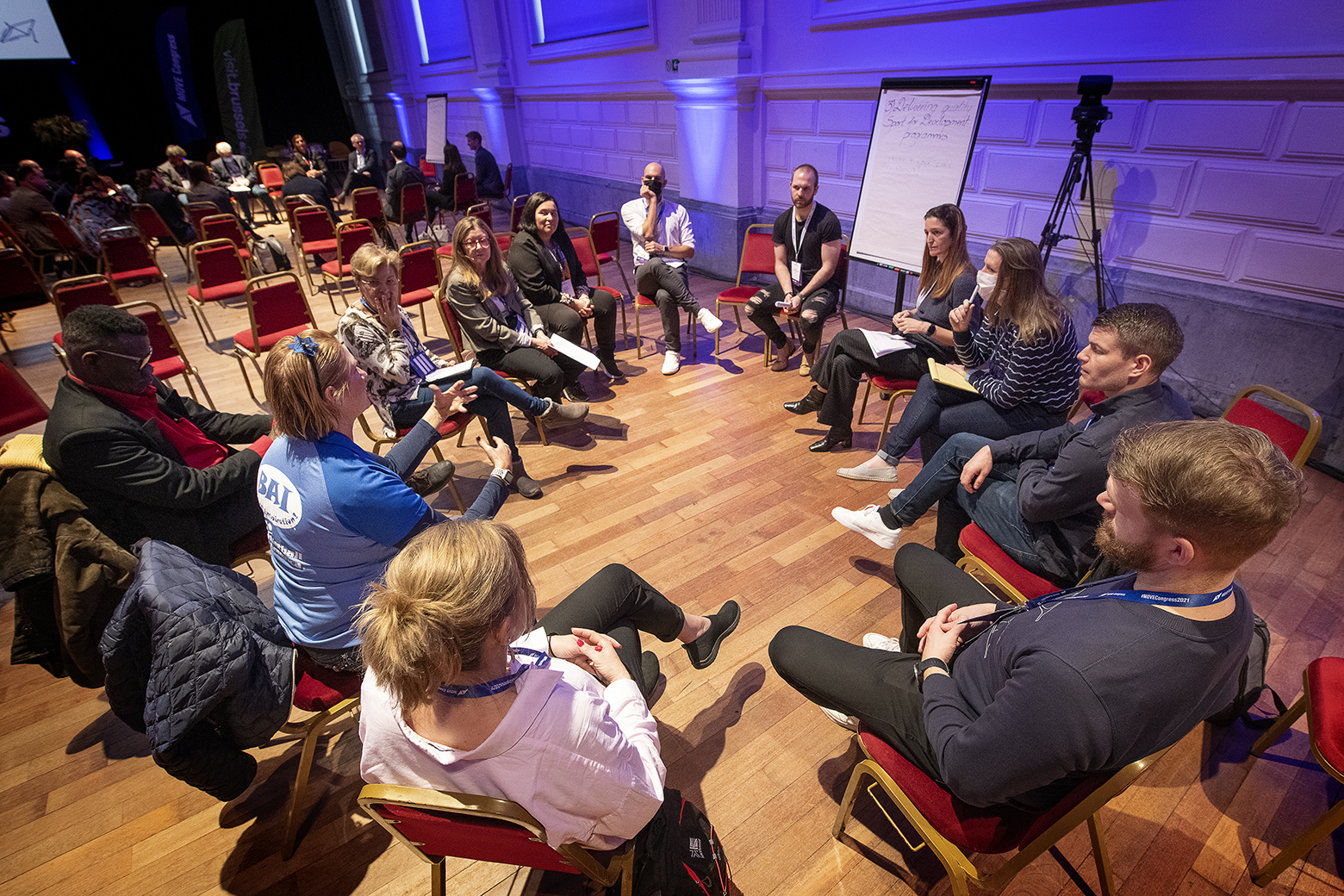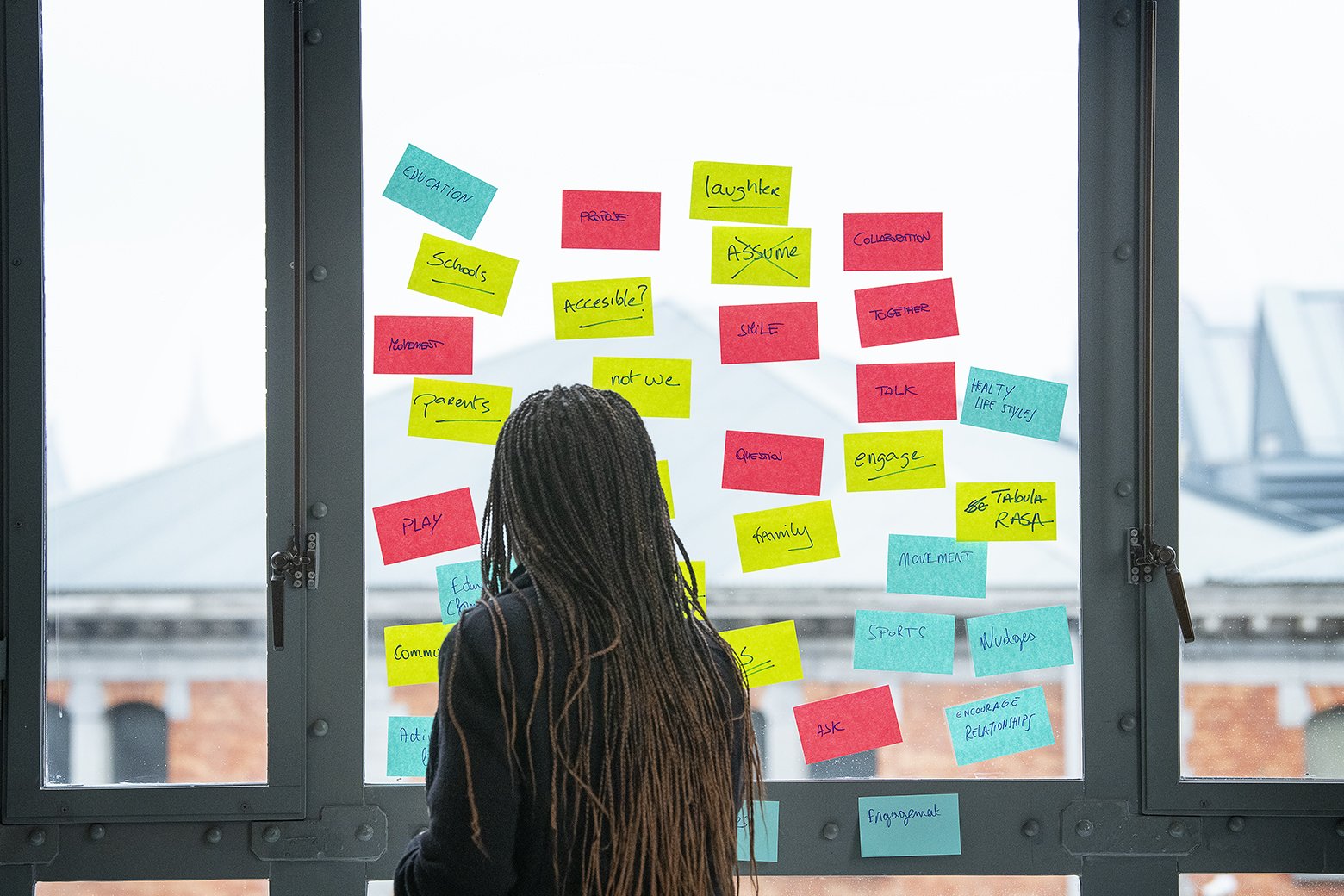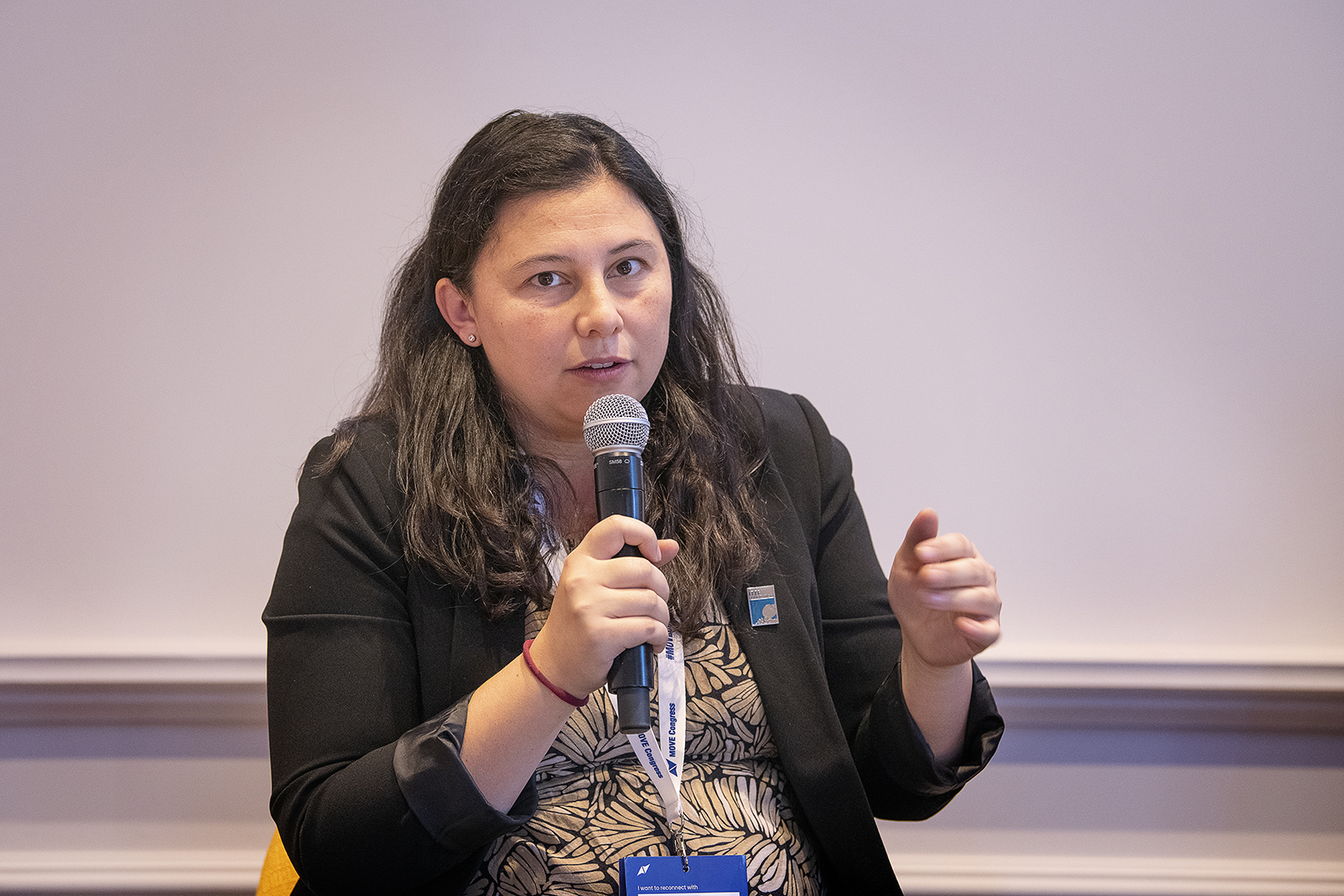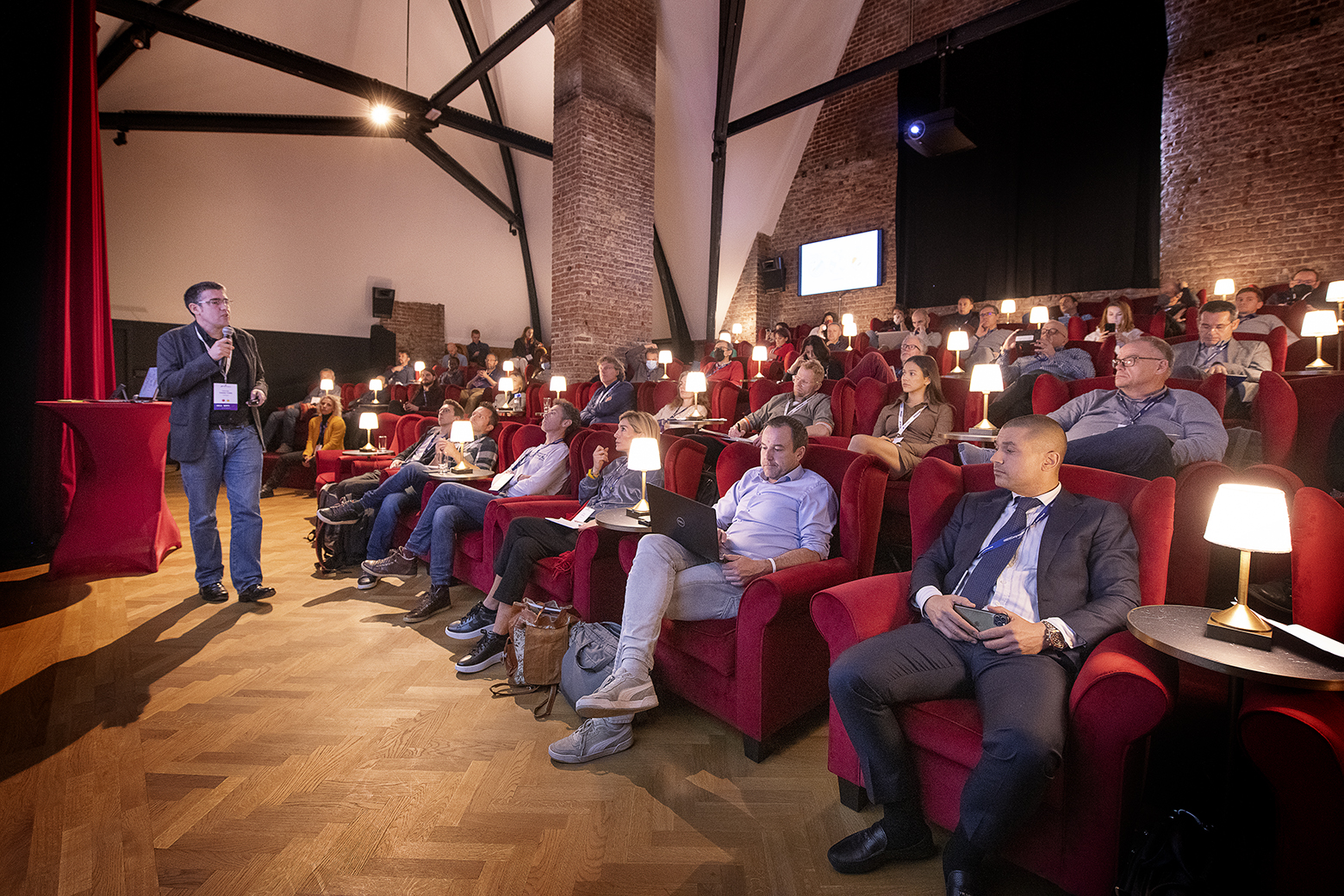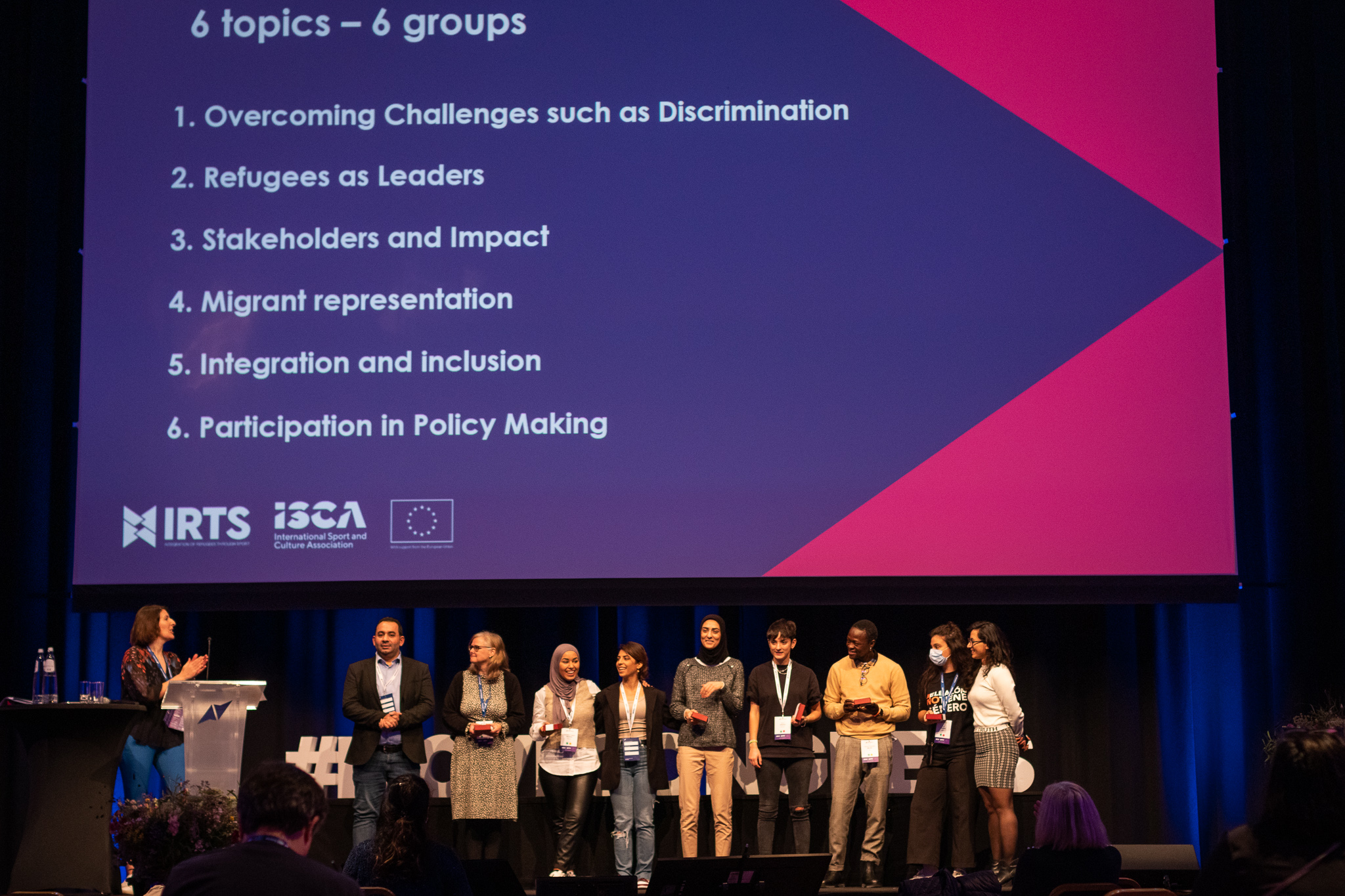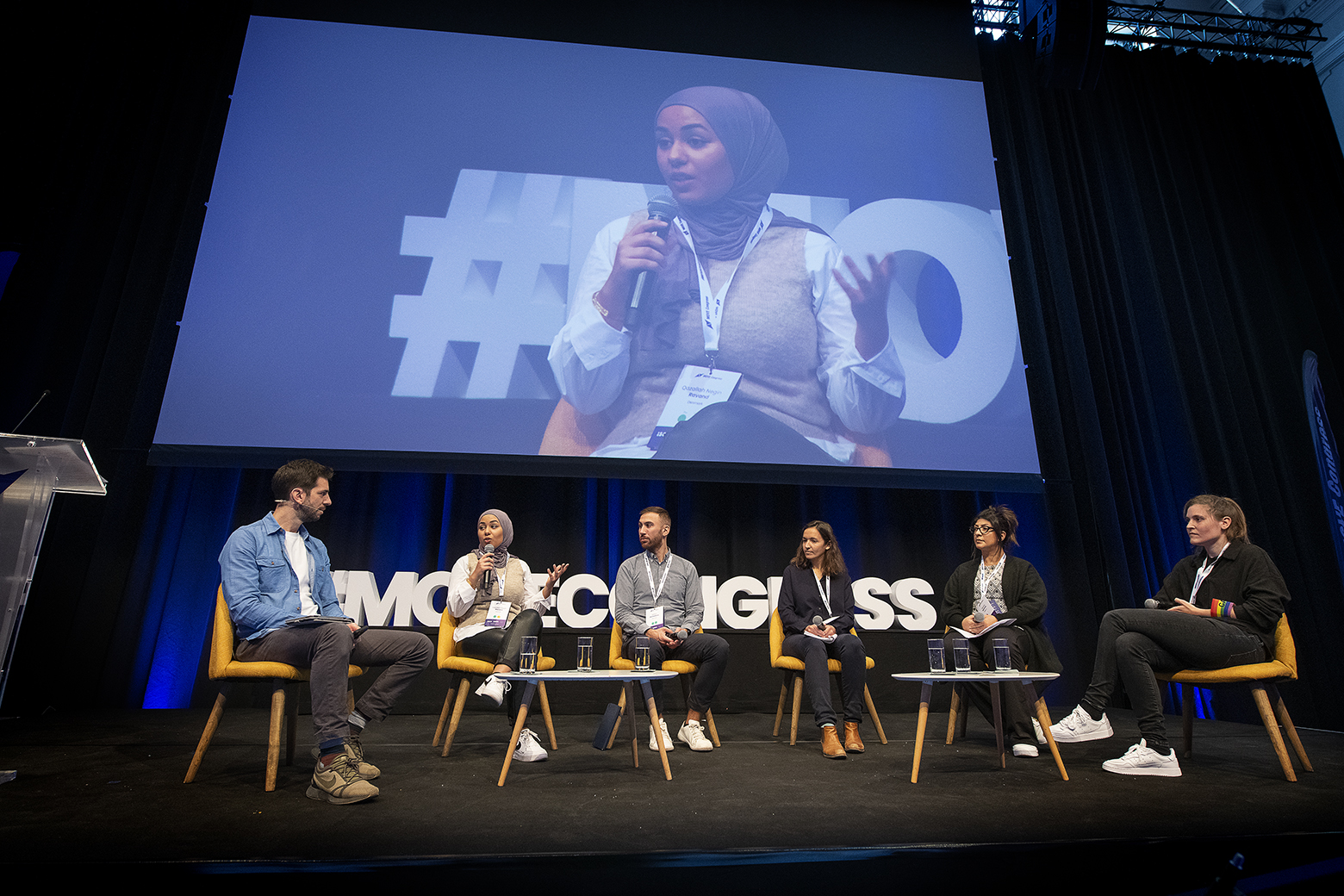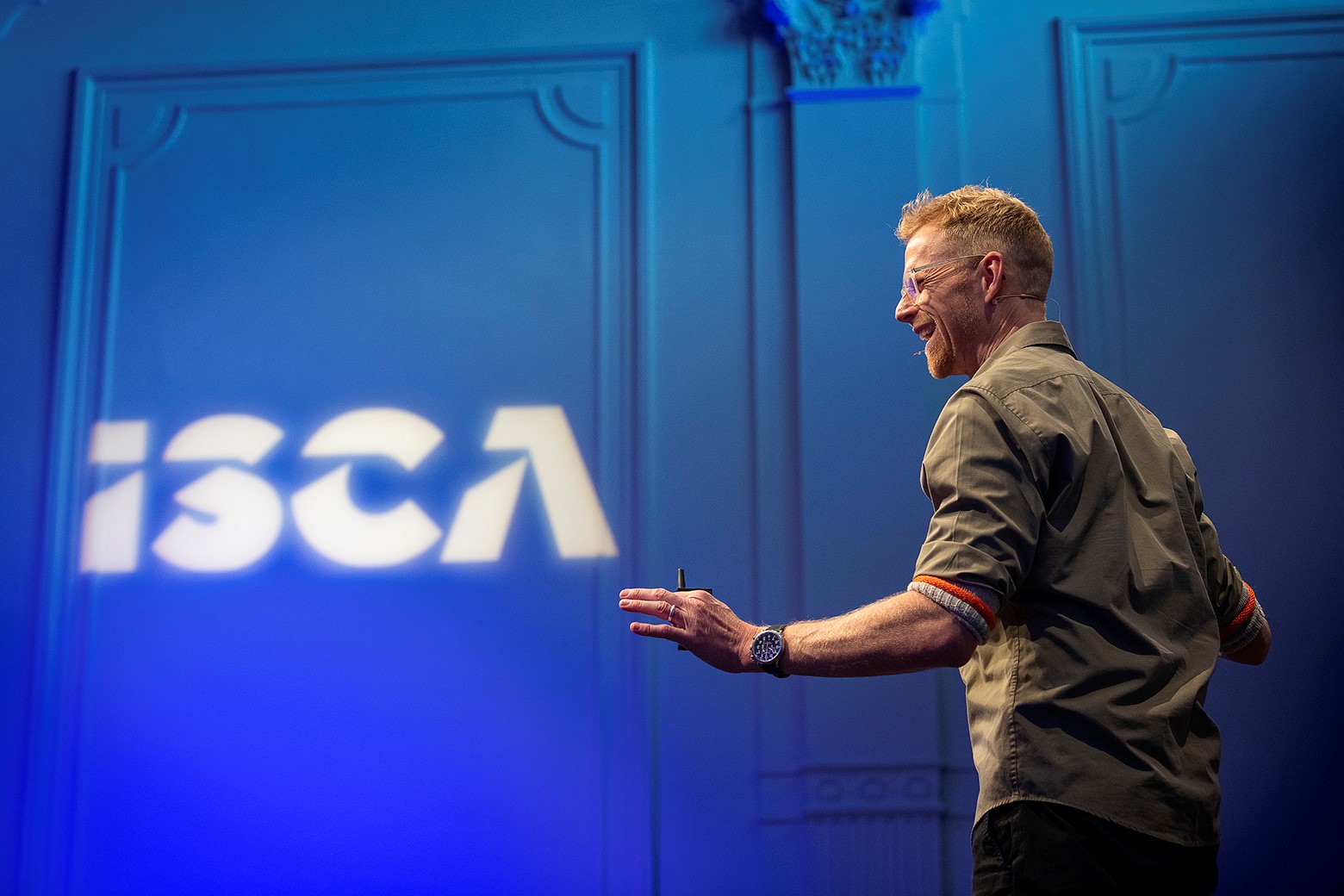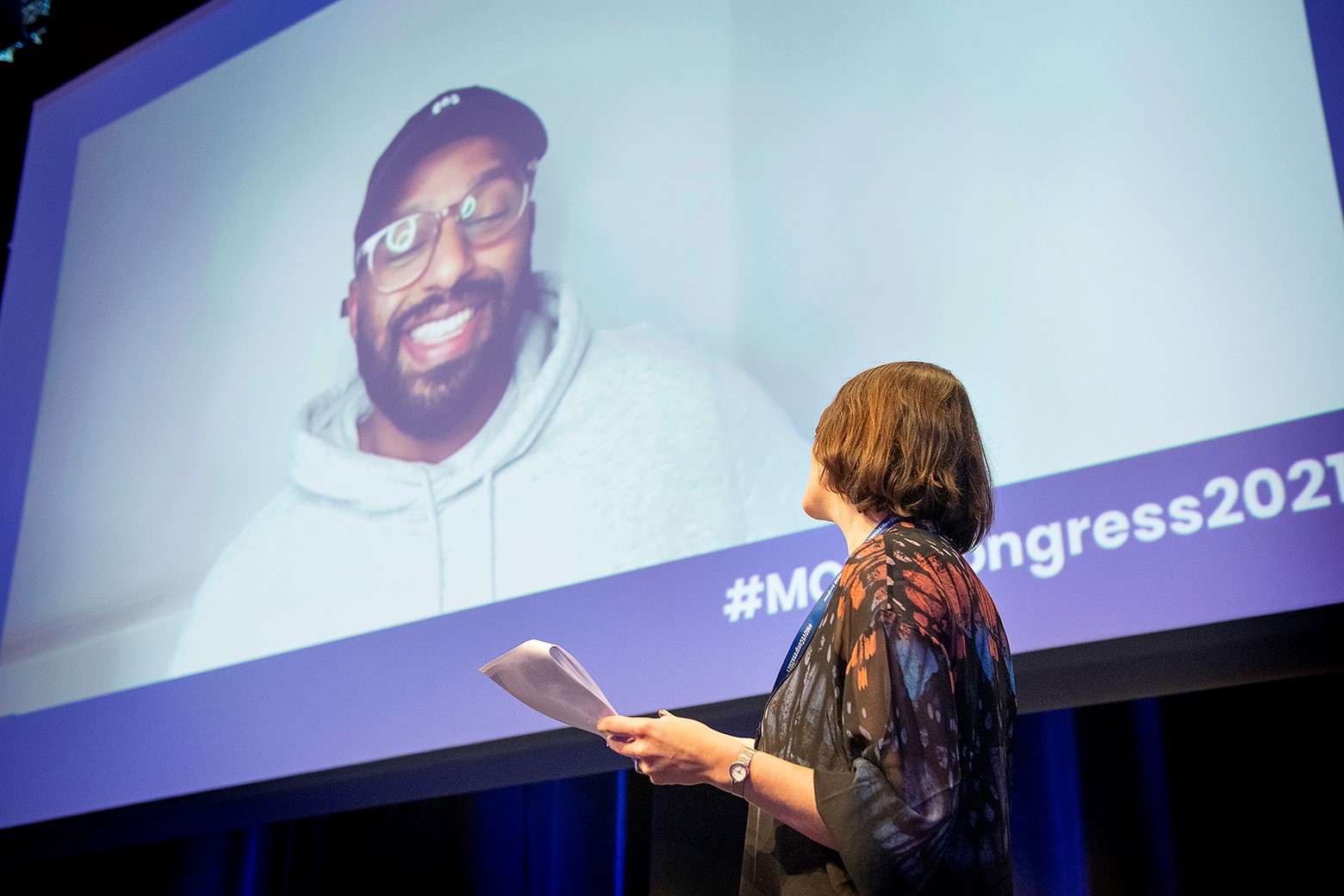For the MOVE Congress 2021, we at ISCA prioritised delivering a physical event, because we believe in the power of the physical meeting between people, and we wanted to enable our members and partners to come together to Reconnect, Rebuild and Restart. Some speakers were unable to be there with us in person, so we used our experience in delivering hybrid and online events to bring their expertise to the congress nonetheless. 300 participants, including 60 speakers plus performers, joined us in Brussels to be part of the MOVE Congress from 17-19 November 2021.
In the plenary session on Friday 19 November, Dr Fiona Bull, Head of the Physical Activity Unit, World Health Organization (WHO) Department of Health Promotion greeted the MOVE Congress participants from Geneva and gave a motivational keynote reminding everyone of the value and need for their work as a Rebuild, Restart and Reinvent sport and physical activity promotion from 2021 and beyond. Her speech was followed by a live Q&A with ISCA President Mogens Kirkeby, who asked follow-up questions from the MOVE Congress stage. The plenary session was live streamed on ISCA’s Facebook channel to a wider online audience.
“It’s with great regret I can’t be with you in person, as I have thoroughly enjoyed previous opportunities to join the MOVE Congress. But I’m absolutely delighted to be with you and say a few words to set off this final day of the Congress,” Dr Bull began.
“I know many of you will be really enjoying it because it’s back to what we enjoy most: sharing our experiences, sharing the challenges and discussing how we can help more people be more active… I want to congratulate the organisers and all of you for this important theme, this Reconnecting, Restarting and Rebuilding, and I’m going to add to it by adding Reinventing.”
The WHO’s Global Action Plan for Physical Activity has target of 15% improvement in physical activity levels across the world by 2030. But the pandemic delivered an unexpected blow to the initiatives supporting this goal, she noted.
“Being active has become so important to us all during Covid and it reminds us how important it is in terms of its contributions to the global agenda [of] global health. We know, but let’s remind ourselves, the importance of the [UN’s] Sustainable Development Goals. There’s real concern now that Covid has set us back on the progress being made, but that progress itself was not enough. We needed it to be accelerating, and now [we’ve been hit by] Covid. Now we’ve got to double that acceleration to reach the target of improving good health and wellbeing and the WHO is the custodian of that target around non-communicable disease.”
The updated WHO physical activity guidelines, published in November 2020, represented a reinvention when it comes to white paper recommendations. The pandemic prompted a quick changing of gears from prescribing minutes of moderate and vigorous physical activity to validating all forms of physical movement as a step in the right direction: “Let’s get it down to its bare facts – Every Move Counts,” she pointed out, reiterating the WHO’s slogan and adding, “Our task is evidence-based and clear.”
She urged physical activity promoters at all levels to join forces with the WHO, the UN, the private sector, civil society and government “to build back better”, “to reinvent and ensure we are providing physical activity to everyone”, extending an invitation to use the resources developed by the WHO to convince colleagues, communities and governments to support sustainable initiatives.
“We need to communicate the benefits… not just the physical benefits, but the mental health benefits and the social benefits to create more programmes for more people and address inequalities and we need to make sure that our systems will sustain this – not one-offs, not pilots, not demonstrations, but real change sustained.”
Mogens Kirkeby asked whether physical activity had lost ground in policy-making due to the focus on combating Covid-19 and Dr Bull responded optimistically, pointing to raised awareness of regular exercise in the UK, Jamaica and Asia (for example) and emphasising that “We think at WHO that it is a must-have policy action area.”
“I share your concern that physical activity has potentially lost ground. And yet, this is perhaps too simplistic because, at the community level, I think we have gained ground in the recognition due to the constraint, due to the confinement, due to the impact of Covid on how we live our lives. We’ve realised that moving has been central… so there’s an opportunity in this… In some countries there’s been increased focus on physical activity.”
Nevertheless, the data she showed indicated that physical activity is still lagging behind other persistent public health priorities, including the fact that tobacco control has more regulatory support than physical activity promotion. Sustaining physical activity programmes is also hindered by intermittent funding that prevents organisations from “building and scaling” their work. So the pandemic is an important crossroads, she said.
“We are at the very important stage of our work of creating and helping the world recover, rebuild and let’s use it to reinvent a stronger system together for better physical activity.”
To take action in our sectors, Dr Bull listed three potential drivers that can complement the WHO’s Global Action Plan: sustained communications, better environments for physical activity, and engaging people through inclusive programmes.
“I know that’s been a core theme of your conference and I congratulate you and look forward to hearing about your deliberations and suggestions.”
Watch the full Day 3 plenary here
Stay tuned for more opportunities to join in WHO and ISCA physical activity initiatives, coming soon.
WHO lead Dr Fiona Bull at MOVE Congress closing: We have to reinvent our system to meet physical activity targets
For the MOVE Congress 2021, we at ISCA prioritised delivering a physical event, because we believe in the power of the physical meeting between people, and we wanted to enable our members and partners to come together to Reconnect, Rebuild and Restart. Some speakers were unable to be there with us in person, so we used our experience in delivering hybrid and online events to bring their expertise to the congress nonetheless. 300 participants, including 60 speakers plus performers, joined
“The ocean is like life – sometimes it’s really unpredictable”: Building mental toughness through sport
Kevin Barton and Viv Holt from Youth Sport Trust international led a peer-to-peer masterclass on the last day of the MOVE Congress titled ‘Rebuilding mental health through physical activity’. “We don’t come here as experts, but as fellow learners with you,” Barton said as he introduced the session. As Dr Fiona Bull from the WHO said in her morning keynote, the past two years have increased awareness of the impact of being restricted and less able to move have affected
“We have to find where the circles are overlapping”: How to make the first MOVE in partnership building
The ‘Mastering partnerships after Covid-19’ MOVE Congress masterclass was held on Friday 19 November and shed light on different aspects of creating and succeeding in partnerships with organisations of different sizes and profiles, with a focus on overcoming the most common collaboration challenges that every organisation can face. The participants gained knowledge on how to master partnerships during and after the pandemic by sharing their experiences among high-profile partner pairs and by taking part in practical “coalition-building” exercises. Helen Vost from
Innovation seems to be everywhere and for everyone – including sport and physical activity promoters
The MOVE Congress masterclasses on Friday morning, 19 November, started with an extremely innovative session (wordplay intended) called 'Mastering the culture of innovation in sport and physical activity'. We heard from some fresh thinkers in the field of recreational sport and physical activity talk about the necessary steps needed for the innovation process to be successful, or, rather, valuable. “The way we are watching, practicing and consuming sports has completely changed. Try to address these changes and remain relevant,” Jean-Baptiste Alliot
“Sport has the power to change the world” and how Sport Diplomacy can make a difference
A two-part workshop and discussion panel featuring experts from two EU-supported projects ‘Towards an EU Sport Diplomacy’ and ‘Promoting a Strategic Approach to EU Sport Diplomacy’ was held at the the MOVE Congress 2021 on Thursday 18 November, exploring broader international perspectives of Sport Diplomacy, and looking closer at the EU Strategy on Sport Diplomacy. Best practices and the role of sports events were discussed with high profile speakers from European institutions and the IOC. Albrecht Sonntag, a specialist in the
Placemaking for physical activity workshop: “It’s not about the buildings, it’s about life between the buildings”
How can we Restart life in our cities in a new way? Expert speakers from Placemaking Europe and Urban Dynamics, and Bennelux placemakers Rozina Spinnoy, Belgium Design Council, Miel Vanhaverbeke, IPitup, and Bart Cardinaal, Hunk Design Rotterdam together with Tour & Taxis COO Peter De Durpel gathered in the MOVE Congress workshop “Rebuild, Reconnect and Restart with Placemaking for the physical activity network” on 18 November to take part in three sessions, providing inspiring yet practical concepts of re-imagining public
“Let’s share the light”: Refugee-led workshop prompts rethink of how to design projects with refugees
Migration expert Adnan Abdul Ghani from Save the Children in Sweden started the MOVE Congress 2021 workshop ‘Reconnect: Collaborate by networking and including refugees’ by sharing his story of starting a movement as an asylum seeker to highlight the skills asylum seekers and refugees can contribute to their new communities. His keynote, followed by a vignette of the refugee’s experience from Girl Power founder Khalida Popal, set the scene for a workshop led entirely by former refugees and migrants who
Nothing about us without us: Why sport needs more diverse decision-makers as it bounces back from the pandemic
The MOVE Congress 2021 plenary session on 18 November featured a discussion panel of experts voicing the points of view of people who are typically – and often systemically – excluded from sport and physical activity. We put inclusion in the “sportlight” and asked why sport has failed to provide safe and inclusive spaces for girls and women, refugees and migrants, people with disabilities and LGBTQI+ participants in the past and how we can take things that we’ve learned during
Restarting friendlier and by daring to go a different way
A little provocative nudge in a different direction is something we need right now – to “build back better”, to create a “new normal”. And our MOVE Congress 2021 keynote speakers on 18 November, Lars AP and Magid Magid are experts in disruption when it comes to nudging individuals and communities towards social change. “Part of the theme here is Restart – but how?” Lars AP, the founder of the F***ing Friendly movement in Denmark challenged the audience of community sport
Magid Magid: “My story is inspiring, but what does it inspire you to do?”
“Let us make a promise not to denigrate but inspire. Rather than bemoan the present, paint a picture of what could be. And instead of inciting hatred and instilling fear, rise above the chorus of our age and dare to sing a different song.” Magid Magid is a Somali-British activist and author, founder of the Union of Justice, former Lord Mayor of Sheffield and former Member of the European Parliament who broke into leadership roles in British and European politics and

